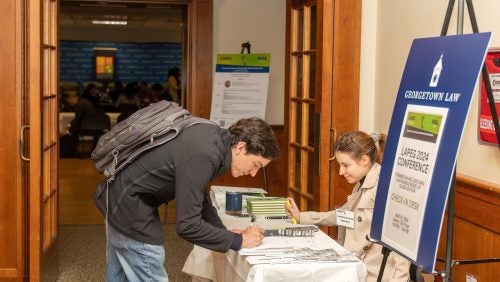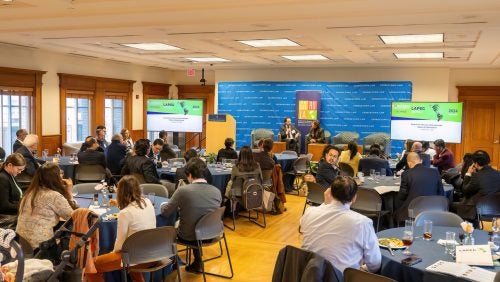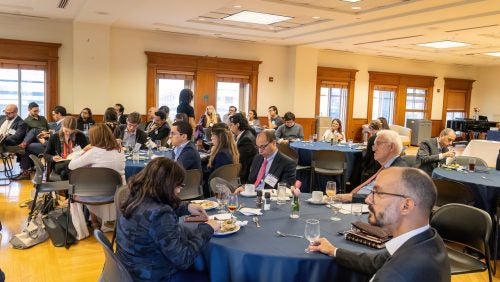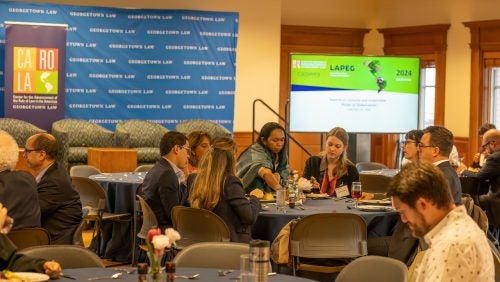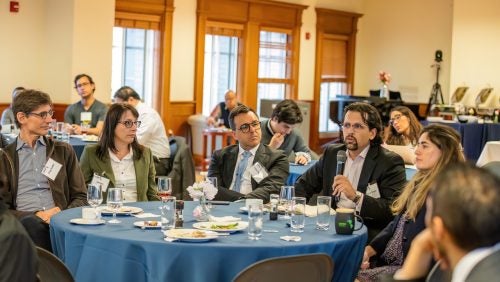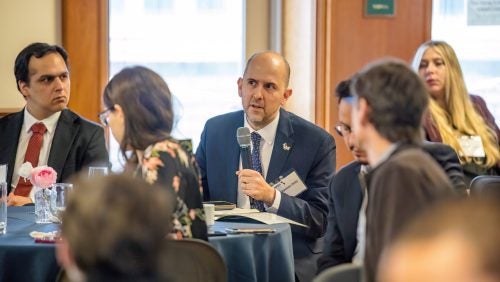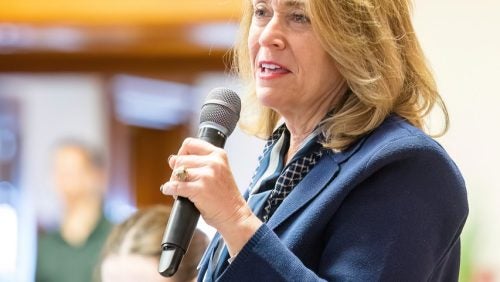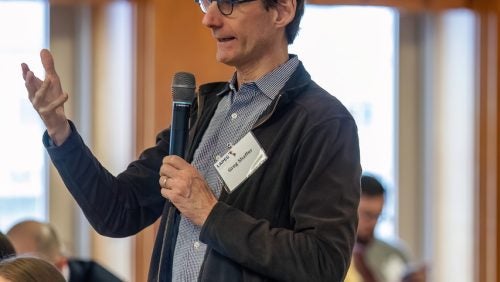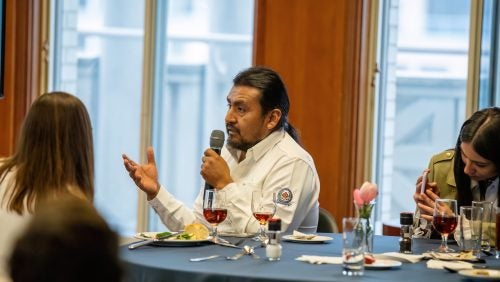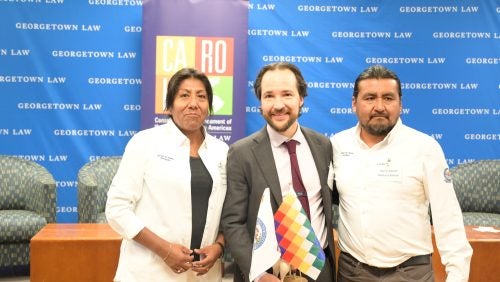Latin American Political Economy and Globalization (LAPEG)
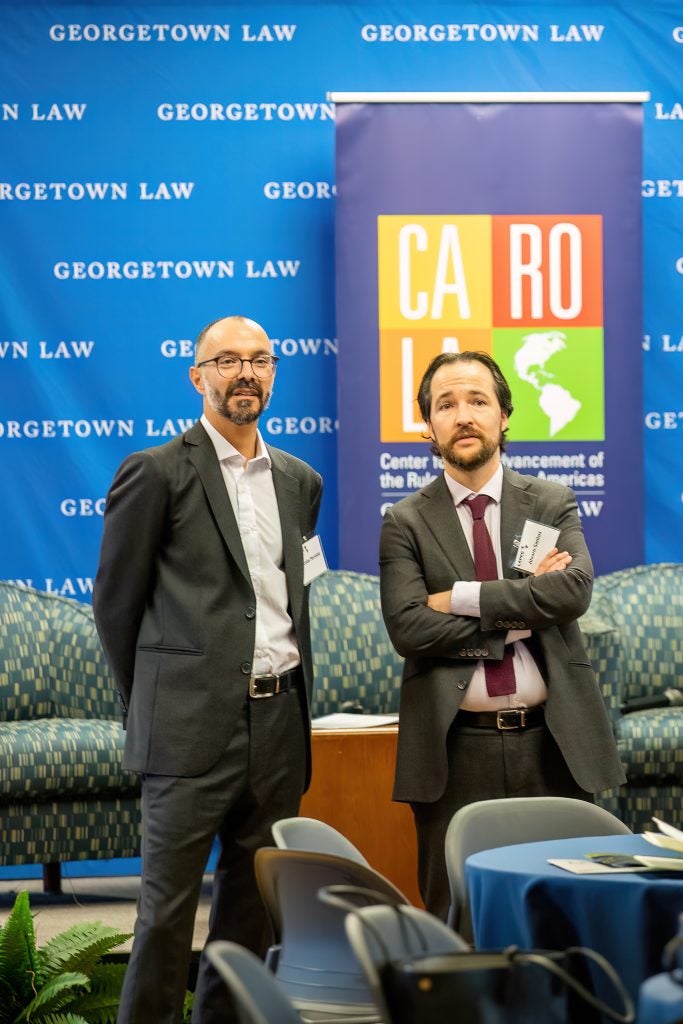
Summary
The Latin American Political Economy and Globalization (LAPEG) program held its first conference Towards an Inclusive and Sustainable Model of Globalization, on April 19, 2024, at Georgetown Law Center. The 2024 LAPEG Conference brought together scholars, policymakers, local community leaders and other stakeholders to explore innovative approaches to international trade and industrial policy for Latin America.
Conference Objectives
The conference aimed to foster dialogue and action in response to the evolving international economic landscape in the post neo-liberal world. Participants discussed new ideas in international economic law and policy options for promoting sustainable and inclusive development in Latin America. Participants discussed a concept paper and three policy briefs on digital trade, critical minerals, and trade and labor. They explored how Latin American countries could advance alternative economic integration policies to generate greater regional benefits.
The conference was also an opportunity to strengthen ties between a diverse set of actors thinking about similar problems in the U.S., Europe and Latin America. LAPEG seeks to create a network of scholars, policymakers, and activists across the Americas, and Europe, to drive transformative change in Latin America. By fostering collaboration and dialogue, the conference laid the groundwork for a diverse and inclusive network dedicated to shaping global rules on trade, investment, labor, and the environment. The full conference program is available here.
Session 1: Recent Developments in International Economic Law and Opportunities for Latin America
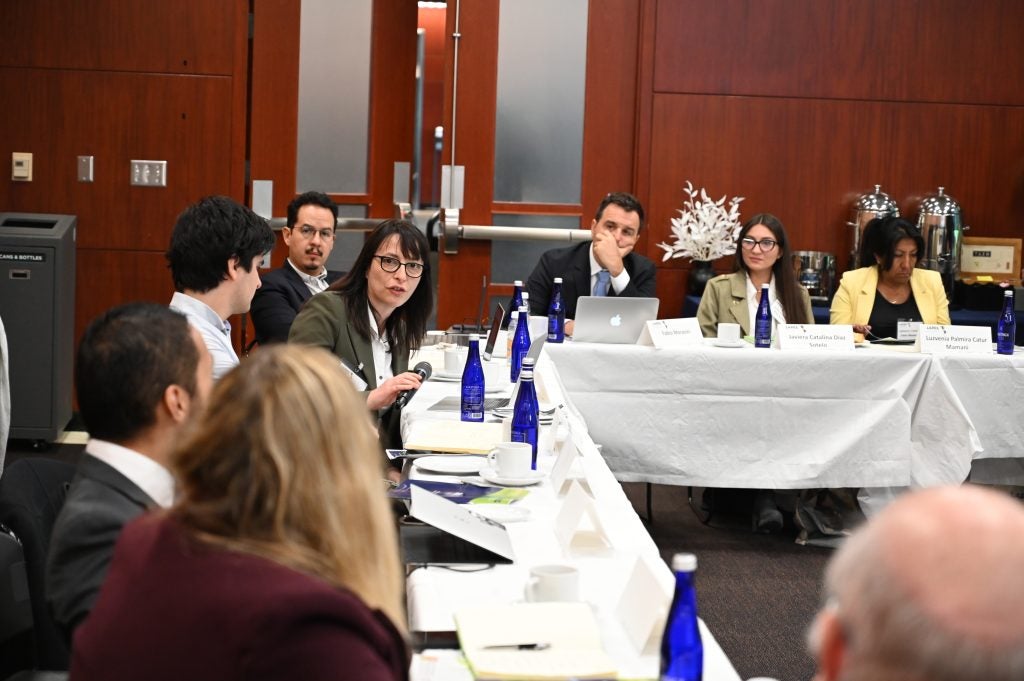 This session featured a concept paper by Álvaro Santos and Nicolás Perrone, LAPEG’s Principal Investigators, titled A New Trade Agenda for Common Prosperity. Santos and Perrone claimed that traditional narratives of free trade have been upended, particularly by the U.S. trade policies during the Trump and Biden administrations and the U.S. new industrial policies. As countries think of new models of globalization that adapt to the challenges of inequality, the energy transition, and the economic competition between the U.S. and China, Santos and Perrone observed that there is an opportunity for Latin America to rethink its engagement strategy with the U.S. and Europe, moving away from an extractivist model of engagement into a more sustainable and inclusive development paradigm. They both highlighted that to achieve these objectives, Latin America should adopt more proactive productive policies. Valuable comments and suggestions were provided by Enrique Dussel Peters (UNAM), Benedict Kingsbury (NYU), and Verónica Robert (UNSAM). The three commentators praised the project and encouraged authors to make a long-lasting intellectual contribution that can set a new agenda for progressive thinking in Latin America, including questions such as Latin America’s relation with China.
This session featured a concept paper by Álvaro Santos and Nicolás Perrone, LAPEG’s Principal Investigators, titled A New Trade Agenda for Common Prosperity. Santos and Perrone claimed that traditional narratives of free trade have been upended, particularly by the U.S. trade policies during the Trump and Biden administrations and the U.S. new industrial policies. As countries think of new models of globalization that adapt to the challenges of inequality, the energy transition, and the economic competition between the U.S. and China, Santos and Perrone observed that there is an opportunity for Latin America to rethink its engagement strategy with the U.S. and Europe, moving away from an extractivist model of engagement into a more sustainable and inclusive development paradigm. They both highlighted that to achieve these objectives, Latin America should adopt more proactive productive policies. Valuable comments and suggestions were provided by Enrique Dussel Peters (UNAM), Benedict Kingsbury (NYU), and Verónica Robert (UNSAM). The three commentators praised the project and encouraged authors to make a long-lasting intellectual contribution that can set a new agenda for progressive thinking in Latin America, including questions such as Latin America’s relation with China.
Overall, the session emphasized the need for Latin America to coordinate efforts, explore alternative economic policies, including regional industrial policies, and examine regulatory frameworks to empower countries to access critical technologies. Despite differing perspectives, there was consensus on the importance of adapting to the evolving landscape of international economic law.
Session 2: Critical Minerals, Digital Trade, and Labor Policies
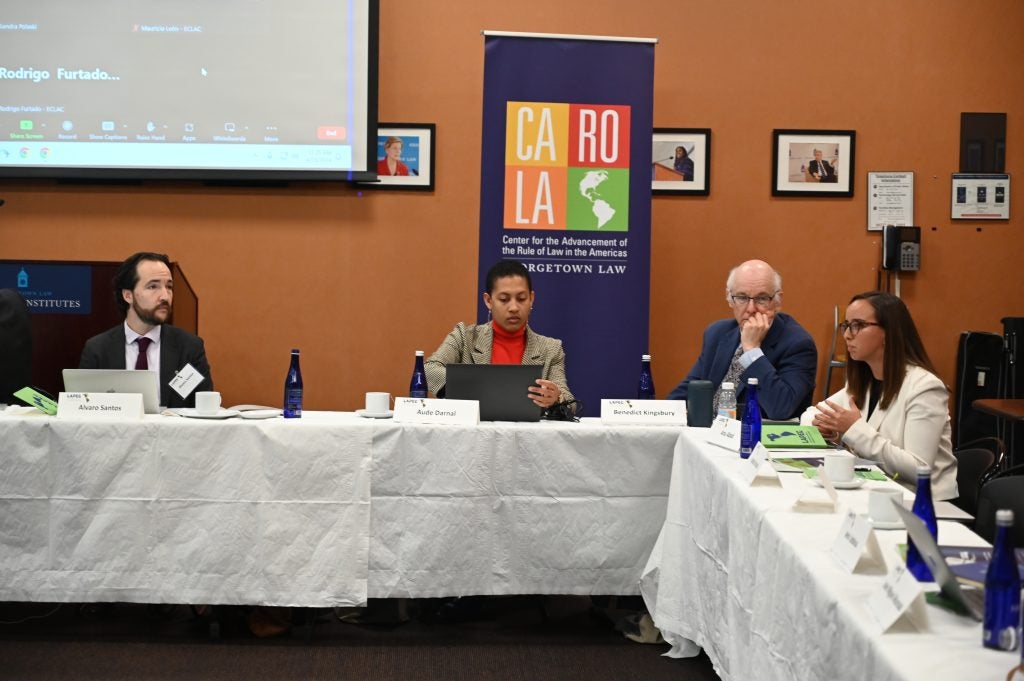
In this session, participants discussed three policy briefs in key areas at the forefront of discussions for a more inclusive and sustainable model of globalization: critical minerals, digital trade and labor policies. Both authors and commentators offered insights into the challenges and opportunities Latin America faces in these areas.
● Critical Minerals: Jose Miguel Ahumada discussed Latin America’s role in the global energy transition, emphasizing challenges in managing critical minerals amidst environmental concerns and geopolitical tensions, particularly between the United States and China. Key highlights included discussions on Latin America’s role in copper and lithium production, the importance of regional cooperation, and recommendations for strengthening smelting capacities in copper and developing low-impact technologies for lithium production. The brief proposed proactive industrial policies and regional coordination to move away from extractivism and allow Latin America to develop and access the needed technologies to move up the global supply chain.
● Digital Trade: Fabio Morosini and Marilia Maciel outlined the U.S., Chinese, and European approaches to digital trade governance. The authors observed the U.S. recent shift from a corporate-driven agenda to a consumer and worker-centered agenda, while noting that Europe has remained focused on data protection and privacy and China on cyber-sovereignty and security concerns. Morosini and Maciel highlighted that Latin America has mostly acted as a rule-taker in digital trade, proposing that the region could learn from other developing countries, including Cote d’Ivoire’s proposal to strengthen digital trade capacities and Nigeria’s proposal for differential treatment of cross-border data flows regulation for developing countries.
● Labor Policies: Daniel Rangel Jurado discussed the lessons learned from USMCA and its labor Rapid Response Mechanism (RRM) as a new approach to enhancing labor rights in trade agreements, particularly on freedom of association and collective bargaining. Rangel highlighted the benefit of moving away from state to state disputes and focusing instead on firm-specific enforcement, which singles out non-compliant companies and prevents negative economic effects on other sectors that would ensue with traditional retaliation. He stressed the need for a more reciprocal mechanism and equal monitoring across all countries. Rangel also highlighted that Latin American countries could benefit from greater enforcement of workers’ rights in trade agreements, as their workers could push for greater wages and working conditions, making it harder for countries to rely on export strategies that relied mainly on exploitative labor.
Comments were provided by Mauricio León (CEPAL), Neha Mishra (Graduate Institute), and Sandra Polaski (Boston University). They focused on the challenges of regional coordination, while highlighting the value of developing a Latin American model or at least a common position in each of these key areas. Polaski also commented on the complexities of coming up with a truly reciprocal labor rights regime in trade agreements. Overall, Session 2 provided valuable insights into critical topics essential for shaping a more equitable and sustainable global economic order.
Fireside Chat: Ambassador Lisa Kubiske, U.S. Senior Official for the Americas Partnership for Economic Prosperity (APEP), U.S. Department of State
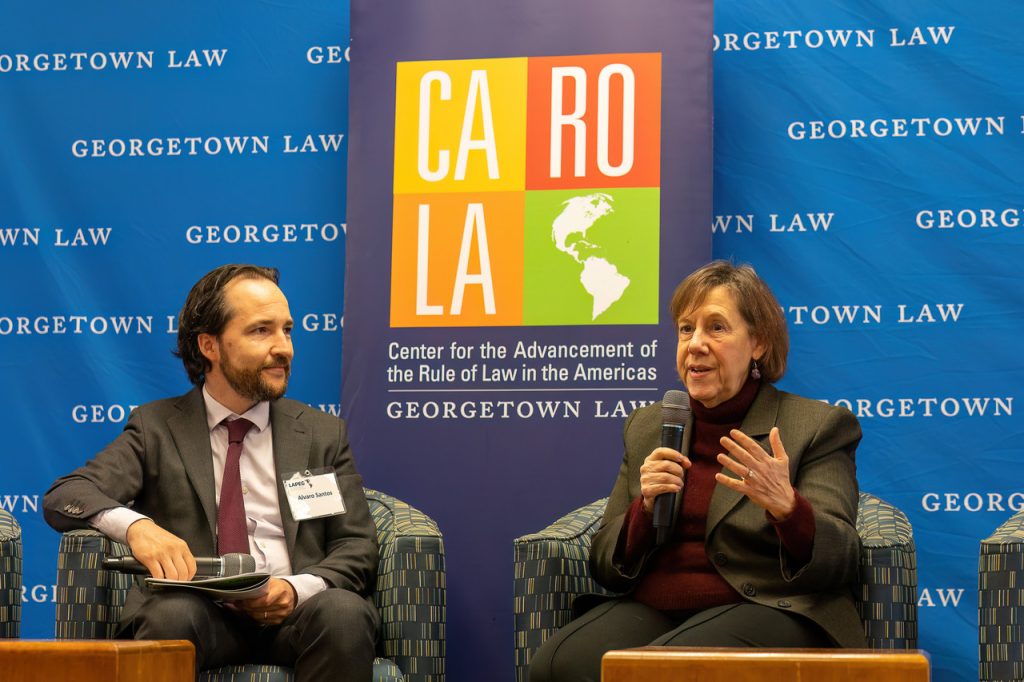 Ambassador Lisa Kubiske, who serves as the U.S. Senior Official for the Americas Partnership for Economic Prosperity (APEP) at the U.S. Department of State, participated in a fireside chat with Alvaro Santos. She discussed APEP’s objectives, emphasizing its role in promoting economic integration, addressing climate concerns, tackling inequality, and enhancing the well-being of working people across the region.
Ambassador Lisa Kubiske, who serves as the U.S. Senior Official for the Americas Partnership for Economic Prosperity (APEP) at the U.S. Department of State, participated in a fireside chat with Alvaro Santos. She discussed APEP’s objectives, emphasizing its role in promoting economic integration, addressing climate concerns, tackling inequality, and enhancing the well-being of working people across the region.
Professor Santos asked Ambassador Kubiske about some of APEP’s criticisms, particularly that the initiative is too vague and pursues too many objectives simultaneously. Ambassador Kubiske told the audience that APEP will improve over time, allowing the participating countries to narrow the scope as they deem appropriate in the different focus areas. She emphasized that APEP was not about one country dictating the terms of engagement but rather about all participating States making proposals and sharing their priorities towards the common goals of prosperity and good governance.
The Ambassador further stressed the importance of collaboration with organizations like the Inter-American Development Bank (IDB), particularly IDB Invest, specifically mentioning the Development Finance Corporation (DFC) to co-finance projects. She stressed the need for private sector involvement in these initiatives. Professor Santos also asked about how APEP relates to increasing geopolitical tensions between the United States and China. He mentioned a concern that Latin American countries will be forced to choose between trading with the U.S. or with China. Ambassador Kubiske clarified that APEP is not against China but rather about increased economic integration in the region.
During the Q&A Alexis Daniel Romero Ramos (President of the Consejo de Pueblos Atacameños) asked the Ambassador about how APEP will integrate local community views, highlighting particularly the challenges of water usage in mining activities in Chile and Latin America more generally. Ambassador Kubiske observed that national governments must take leadership in these processes and that APEP can support these efforts. To conclude, Ambassador Kubiske highlighted that the hope over time was to expand APEP beyond its existing 12 members (Barbados, Canada, Chile, Colombia, Costa Rica, Dominican Republic, Ecuador, Mexico, Panama, Peru, Uruguay, United States).
You can watch the fireside chat here:
Session 3: Bringing the Local into Latin America’s Trade Policy Discussions
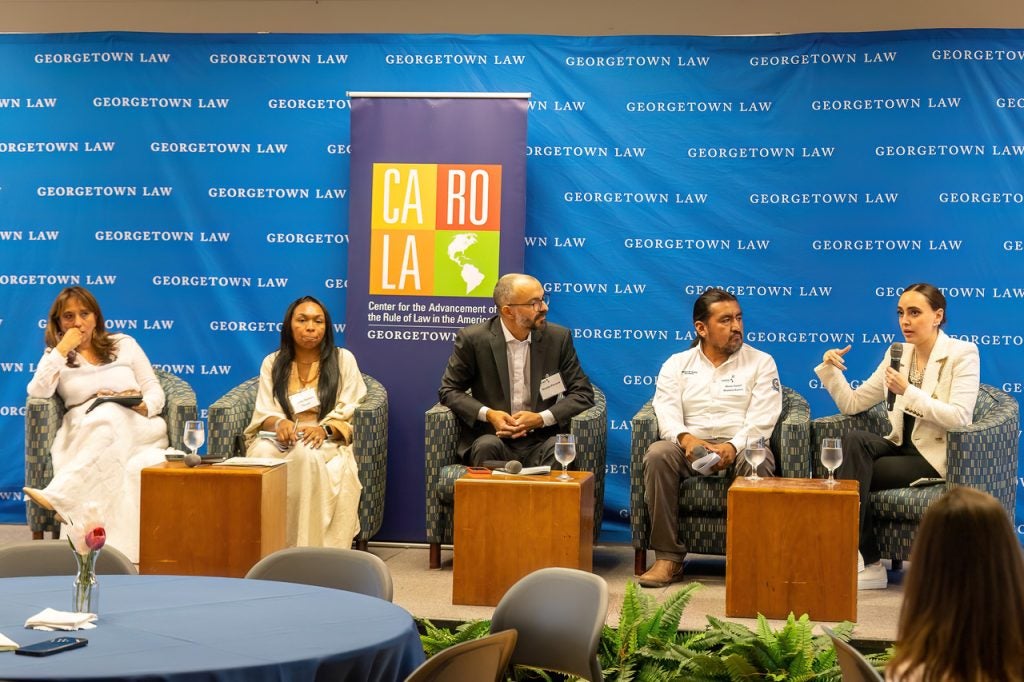
This session brought together policy makers, and business and indigenous leaders to discuss Latin America’s trade policy, exploring how it may serve to advance sustainable and inclusive development in the region.
Altagracia Gómez of Grupo PEO advocated for collaboration among government, academia, and private industry to address economic challenges comprehensively, including issues of security and formalization of businesses. Gómez outlined five principles—inclusion, innovation, regional vocations, sustainability, and digitalization—as crucial for guiding investments toward shared prosperity.
Alexis Daniel Romero Ramos, President of the Council of Atacameño Peoples, spoke passionately about the need to preserve the ancestral language and culture of his community. He raised concerns about the impact of lithium mining on their traditional territories, highlighting the threats to ecosystems, particularly water, and the community’s way of life. Romero Ramos shared insights into negotiations with mining companies and the Chilean government, stressing the importance of prior consultation and transparent participation of indigenous communities in decision-making.
Jazmín Romero Epiayu, a Wayuu Indigenous from La Guajira, Colombia, spoke about the economic injustices faced by her people in Colombia, emphasizing the exploitation of natural resources without consultation or consent, which usually leads to environmental degradation and cultural loss. Romero Epiayu highlighted the challenges of economic development in a context where indigenous knowledge and products are plagiarized and exploited. She raised concerns about the lack of protection for indigenous culture, urging for a more equitable approach to trade and investment that respects indigenous sovereignty, knowledge and intellectual property rights.
Finally, Soraya Caro Vargas, Colombian Vice Minister for Business Development, outlined three key ideas: acknowledging the diverse starting points of countries in industrial development, emphasizing the need for tailored industrial policies to address unique socio-political realities, and advocating for strategic partnerships to foster economic solidarity. Caro Vargas highlighted Colombia’s efforts to boost productivity, strengthen supply chains, and support regional economic development, particularly focusing on micro and small enterprises. She also called for transformative relations with the United States and broader partnerships to empower marginalized sectors and promote economic inclusion.
Overall, Session 3 underscored the consensus between the public, private and community sectors about importance of inclusive, sustainable, and regionally tailored policies to advance prosperity in Latin America.
You can watch this session here:
Session 4: Inclusive and Sustainable Models of Globalization for Latin America
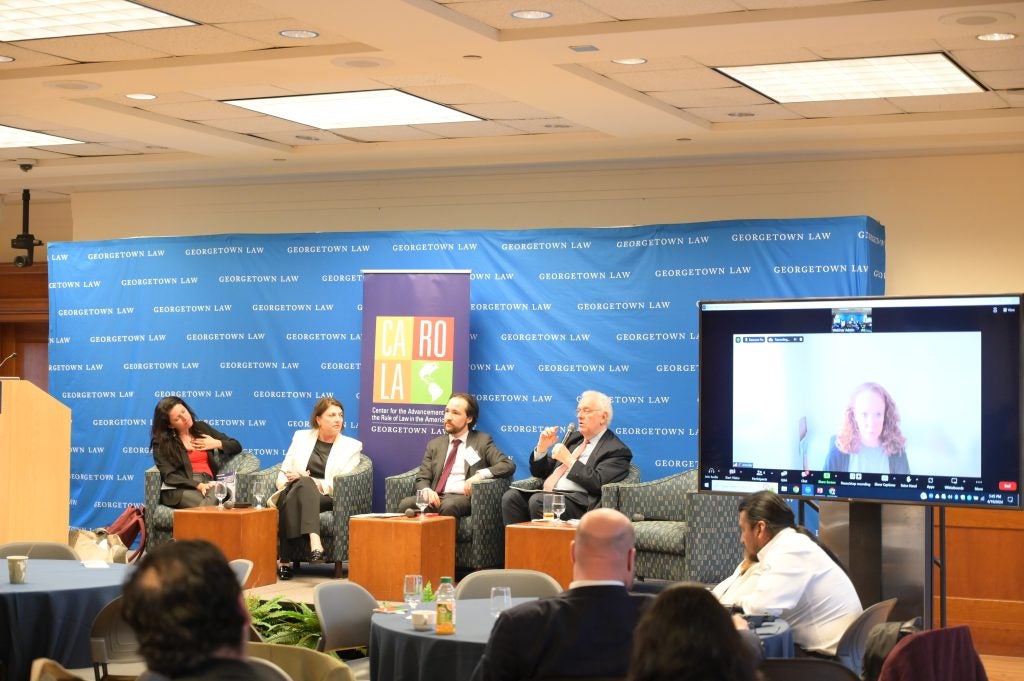
The final session explored visions for an inclusive and sustainable model of globalization in line with Latin America’s needs. Speakers offered perspectives on how to create a more equitable and resilient economy for the region.
Ana María Ibañez, Vice President for Sectors and Knowledge, Inter-American Development Bank, spoke about the regularization of migrants in Latin America, focusing on the case of Colombia. She noticed that the number of refugees in the world has more than doubled in the last twenty years and that refugees are mostly hosted in developing countries. In Latin America and the Caribbean, immigration has doubled since 1990, reaching 15 million migrants in the region. She highlighted the challenges and benefits of programs like PEP (Permiso Especial de Permanencia), which provide work opportunities and access to public services for migrants in Colombia. Despite implementation difficulties and concerns such as misinformation and xenophobia, these programs have been effective in improving the welfare of immigrants and have been a net positive for the host countries.
Jennifer Harris, Director Economic and Society Initiative, Hewlett Foundation, emphasized the importance of APEP as a platform to strengthen U.S. and Latin American economic relations. She noticed that the lack of market access concessions shouldn’t be a problem because U.S. average tariff rates are already very low, and there are many other benefits Latin American countries could get from this partnership. She mentioned the importance of IDB Invest as a source of funding and as a catalyst for private sector investment on key areas. She also highlighted the important opportunity to collaborate on critical minerals given the resources in Latin America and the U.S. need to diversify its supply chain for green energies. Finally, she discussed how Latin American countries could support the initiative for a global minimum tax, which would also give their governments much-needed resources.
José Antonio Ocampo, Professor at School of International and Public Affairs, Columbia University, noted that the past decade (2013-2023) was the second lost decade for Latin America regarding economic growth, with the worst performance in the world. He discussed the need to address macroeconomic imbalances and focus on production sector policies, not only in manufacturing but also in services and mining. He stressed the need to identify strategic possibilities such as food production, transition minerals, and clean energies. He discussed the potential for regional industrial policies, shaping a different kind of regional integration, seeking financing from regional banks and increasing coordination in new areas such as science and technology.
Lastly, Cristina Reis, Undersecretary for Sustainable Economic Development, Secretariat of Economic Policies, Brazilian Ministry of Finance, critiqued the implementation of the 2030 SDG agenda in Brazil, highlighting issues of governance and environmental degradation. She called for a comprehensive approach to address fundamental problems such as class, race, and gender in the context of economic development and sustainability.
In conclusion, Session 4 identified some successful policies, such as effective migrant regularization programs, but also warned about existing problems and challenges. Lack of capacity , environmental degradation, and social inequalities remain significant obstacles. The session urged policymakers to address these issues comprehensively and explore opportunities for regional coordination and cooperation.
You can watch this session here:
The LAPEG conference was made possible thanks to the generous support of the Hewlett Foundation and the work of the LAPEG team: Enrique Boone, Ana Isabel Abad, María Belén Paoletta, and Paulina Rojas.

